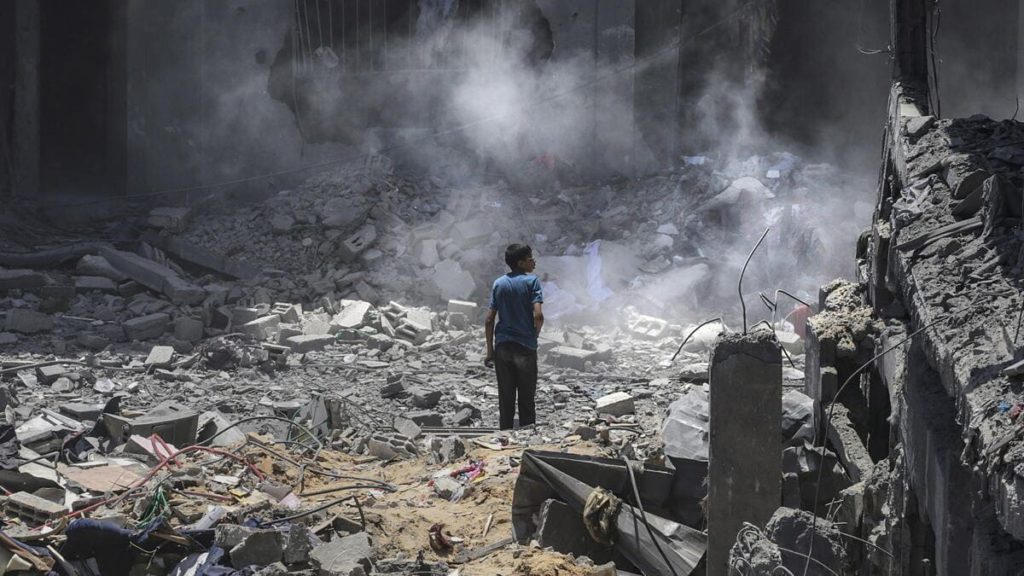The Unexpected Victory: Israel’s Triumph in the Middle East
It seems that even Benjamin Netanyahu himself did not expect it, but one year after the catastrophe of October 7th, Israel is emerging victorious on all fronts. While Hamas is not yet defeated, it has been significantly weakened after Gaza was reduced to rubble through relentless bombings. The formidable enemy, Hezbollah, is now on its knees following a series of colossal errors.
The entire terrorist chain of command, starting from the top with Hassan Nasrallah, has been eliminated; communications were disrupted due to the explosion of pagers; even militarily, the “Party of God” is struggling and perhaps did not anticipate Israel’s invasion of Lebanon to push the militiamen back behind the Litani River, destroying all the outposts they had spent decades building.
Israel’s Diplomatic Triumph
Israel’s victory is also primarily diplomatic. Despite the war costing over 40,000 lives in Gaza and around two thousand in Lebanon, the United States remains firmly by Tel Aviv’s side. The truth is, apart from a few feeble calls for ceasefires, Washington is pleased to see the terrorist organizations linked to Iran weakened by Israel’s radical operation.
Even more crucial for the Jewish state is the tacit support from much of the Arab world: Nasrallah’s killing sparked a wave of jubilation throughout the Middle East. Sunni regional powers rejoice in seeing Israel doing the dirty work for all – eliminating the most dangerous elements of the Shia Axis of Resistance.
Netanyahu’s Focus on Iran
The war is going so well that Netanyahu has begun to nurture a once unthinkable dream: “total victory,” which entails toppling the ayatollah regime that has never appeared weaker, and the “regime change” in Iran. Many in Tel Aviv and the West believe that true peace will only come when the great enemy, seeking the atomic bomb to wipe Israel off the map, is destroyed.
But they could be mistaken. The logic of the strongest has always prevailed in the Middle East but has never created a stable order. Lebanon serves as a prime example: Israel dismantled the PLO with the 1982 invasion, leading to the birth of Hezbollah. The U.S. intervention in Iraq in 2003 brought down Saddam Hussein but did not bring stability, only hundreds of thousands of casualties.
The Rise of Sunni Powers?
Giuliano Ferrara’s article in Il Foglio suggests that for a future of peace, the counter-revolution led by the great Sunnis may be more reliable than the obscurantist revolution of the ayatollahs. Perhaps he is right. Since Mohammed bin Salman launched Vision 2030, Saudi Arabia has shifted focus from ideology to pragmatism, showing willingness towards Israel and potentially even signing the Abraham Accords to take control of the region and defeat their archenemy in Tehran.

The Era of Jihadist Terrorism
Yet, can we truly believe that Saudi Arabia, which has reduced Yemen to rubble and funded terrorism in Europe, is a stabilizing force? The rise of Sunni terrorism in recent years, fueled by Saudi and Qatari funds, has left a trail of destruction in Western countries. The atrocities committed by ISIS and Al-Nusra in Iraq and Syria were tacitly allowed by Sunni nations to weaken Shia powers.
Israel’s Caution with Russia
While many Iranians are fed up with the Khomeini revolution, there is no guarantee that Israeli assistance in overturning the regime would be warmly received. The reaction of Russia, having allies in Iran and Syria, remains uncertain. Will Vladimir Putin simply stand by as events unfold?
As Vittorio Emanuele Parsi wrote in Il Foglio, Netanyahu’s eternal illusion is that stability can be built solely on the tips of bayonets. The Middle East envisioned by Netanyahu may not bring about lasting stability.
The Unpredictable Middle East
Anthony Samrani extends this thought, emphasizing that the violence begets more violence, and Israel’s probable victory could trigger a cycle of destruction in the region. The year that has led to the systematic destruction of the Palestinian enclave has bred radicalization across the entire Middle East.
The Palestinian Predicament
One year has passed since October 7th, yet the Middle East has not progressed. The strategy employed by all regional powers continues to be the same: eliminate the enemy. As dreams of a new Middle East abound, the plight of the Palestinians remains unresolved.



